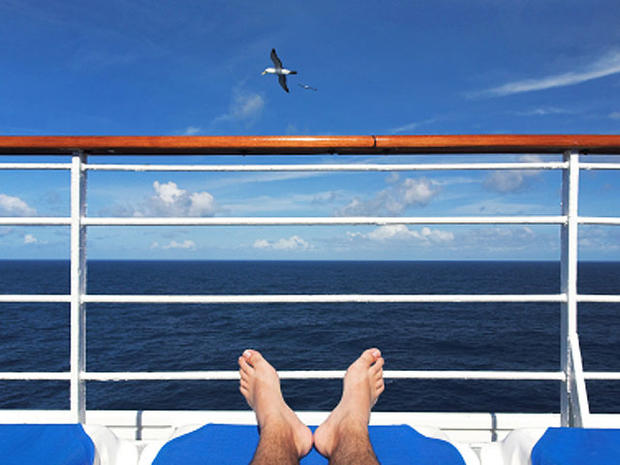Carnival Splendor Fire: What Passengers Must Know about Cruise Ship Safety
(CBS/AP) Cruise ships are supposed to deliver safe, carefree fun for their passengers, but things don't always turn out as planned.
Case in point: Monday's engine room fire that left the Mexico-bound Carnival Splendor cruise ship adrift without power off the California coast.
None of the 4,000-plus passengers or crew members aboard was hurt. But the 952-foot-long ship must wait for the arrival of boats that will tow it back to shore - a process that is expected to take about 24 hours.
There's not much passengers can do to guard against the inconvenience and anxiety caused by a disabled ship, but there are things passengers can do - before embarking and afterward - to avoid illness and infection while on a cruise.
For starters, passengers should have a thorough medical checkup before the cruise, says Dr. Benjamin Shore, a former cruise ship medical director and the former chairman of the section of cruise ship and maritime medicine section of the American College of Emergency Physicians. "Focus particularly on your immunization history, making sure you are up to date on tetanus, diphtheria, polio, and hepatitis A and B."
Information about immunizations recommended for travelers is posted on the website of the Centers for Disease Control and Prevention.
Passengers who take prescription medication, especially for chronic diseases like diabetes and high blood pressure, should be sure to take along enough medication for the entire trip - and for a few extra days, just in case. Pills should be kept near at hand at all times.
In case a serious medical problem arises during a cruise, Dr. Shore recommends looking into "repatriation insurance" - prior to embarking. Some credit card companies offer such coverage, which helps cover the cost of an air ambulance back to the U.S. if shipboard or local doctors are unable to handle the case.
Perhaps the most important advice for cruise ship passengers is no different than that doctors offer their patients on dry land:
Wash your hands frequently.

